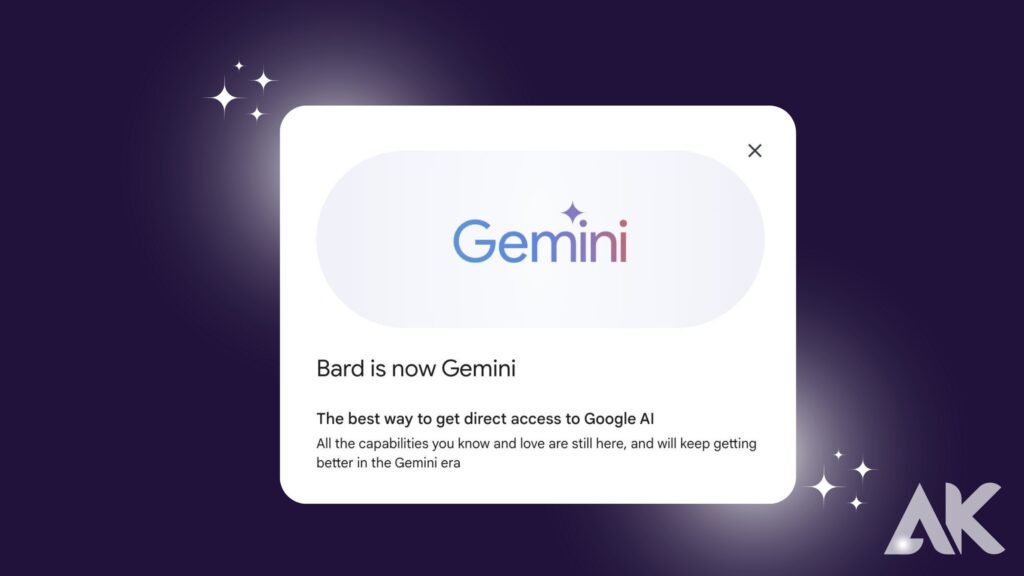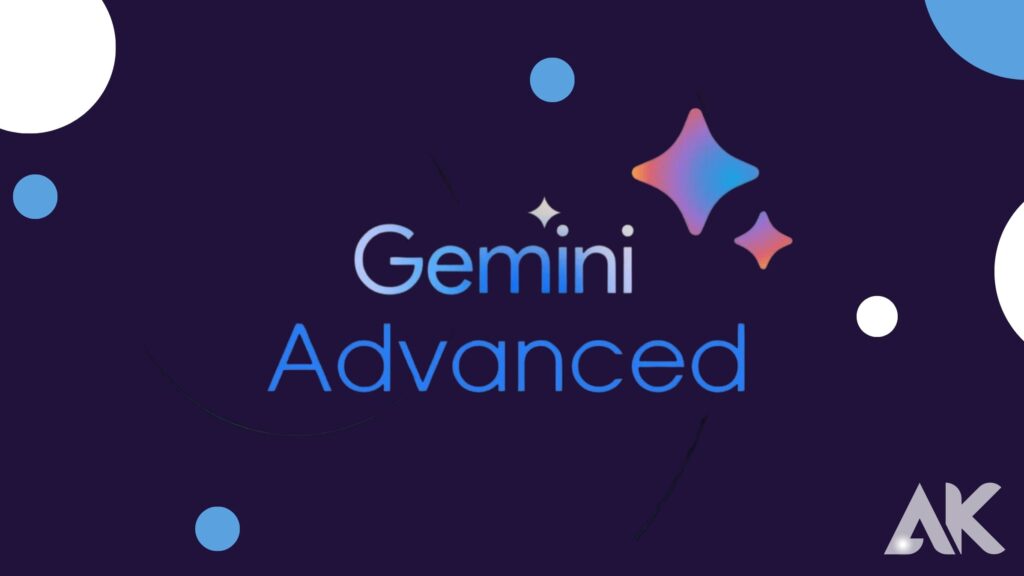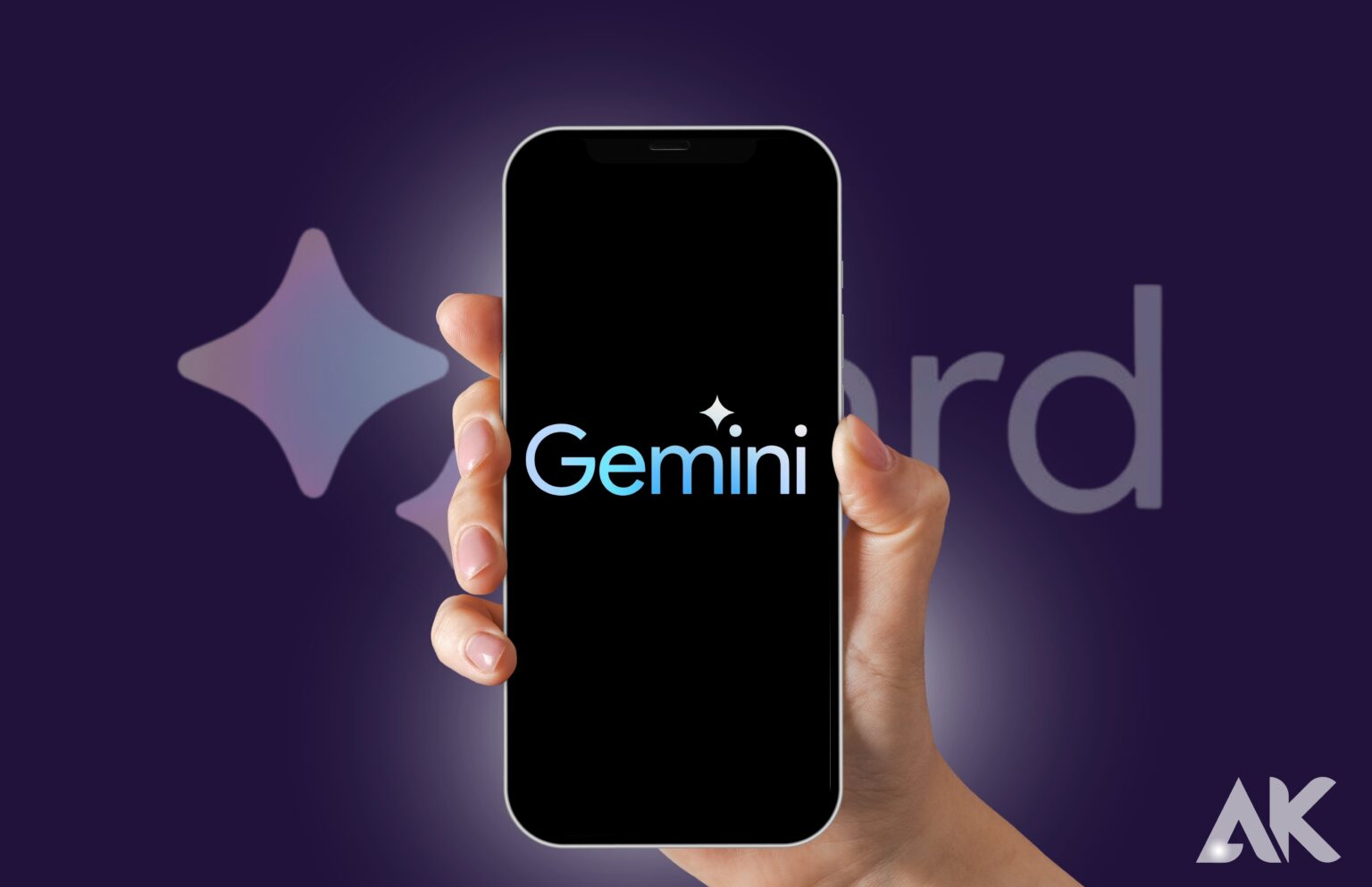Learn the story behind Google’s daring choice to switch to Gemini, the final stage of their significant rebranding adventure. Explore the reasoning for adopting the Gemini brand and uncover the strategic insights, challenges, and innovations that drove Google’s progress. Find out what happened, who was involved, and why this historic rebranding effort was so important.
Why did Google change Bard to Gemini?

Gemini will replace Bard as Google’s AI conversation experience, the company said today. Gemini is the new name for the experience; however, bard.google.com is still accessible. However, changing the name isn’t the only change. Along with the Android app, Google is releasing a new AI experience.
We can all agree that the name Bard isn’t fitting for an artificial intelligence chatbot. Of course, there’s the Bard reference, but nobody was equating poetry with Google’s chatbot. That is not to say that the experience was terrible; it was only present. Additionally, Google’s seriousness was not conveyed by the bard.
It was perplexing as well. Google may provide a Search Generative Experience (SGE) result when you ask a query. Could it be Bard? Is it significant? Things will be made easier with the new name.
Another way of looking at it is that Gemini is both the experience and the language model. No pun is meant, but it is different from Microsoft’s approach. Copilot, Microsoft’s assistant in Windows and Bing search, is powered by GPT-4, the language model underlying ChatGPT. There are three distinct names for three distinct concepts. Sometimes it’s tough to keep track.
Users will now just need to remember one name—Gemini—for the whole stack, according to Google, simplifying things for them. There is more complexity to it than that.
The Nano, Pro, and Ultra are the three distinct Gemini versions. The names just indicate the various model sizes. The more features a model has, the more jobs it can execute, but it also uses more resources. To illustrate the point, Nano is a model specifically engineered to operate on mobile devices.
The Pro and Ultra versions are the focus of today’s announcement from Google. The Pro model now powers the Gemini chat experience, which was previously known as Bard. The only modification is that the model and experience are now referred to as Gemini rather than Bard.
The next thing you know, Google unveiled their Ultra 1.0 model-based Gemini Advanced experience. For the first time, Google is making its biggest and most powerful model accessible to customers.
A new Gemini app for Android was also published as part of the announcement, which is a major development. Gemini will take the place of Google Assistant if you want to use it; however, you will still be able to access it by just saying “Hey, Google.”
Although Gemini is now integrated into the Google app for iPhone, there isn’t a dedicated app for iOS. Along with Gmail, Gemini is now making its way to Google Workspace, which includes Docs, Sheets, and Slides.
Gemini Advanced

Gemini Advanced, Google’s premium edition of Gemini, was also unveiled. Included in the $19.99/month AI Premium version of Google One, which also includes more storage and a few other capabilities, it is available for purchase separately.
If you want to provide more detailed instructions and have Gemini grasp the context, you may choose Advanced, according to Google. At a press event, Google promoted Bard as a helpful tool for creating content from start to finish, including idea generation and content generation.
- The engine that drives Advanced is Gemini Ultra 1.0, the “largest and most capable model for highly complex tasks,” according to Google.
- Over 150 nations have access to it; however, initially, it was only accessible in English. With time, Google will expand its language support.
- We will soon be releasing more advanced capabilities for data analysis, coding, and multimodal visualization.
- New customers may try Google Duplex for two months at no cost.
- Gmail, Docs, Sheets, Slides, and Meet will soon be able to use Gemini as part of the Google One premium package. Gemini is replacing Duet AI.
Why the name change?
To make things easier for users, Google has made it quite apparent that the model they are interacting with is Gemini and not Bard. Google is constructing a complete ecosystem around Gemini.
- According to Google, Gemini is likely to continue calling itself Bard even if you ask it today. Google is now addressing the issue with the model’s name change.
Gemini on mobile
Additionally, Gemini will have its own Android app. You have the choice to use the current assistant experience or switch to one run by Gemini after installing the app. (Shortly, I believe Gemini will be your only choice.)
- When it launches, Gemini will also be accessible via the Google app for iOS.
Conclusion
Google has renamed its AI chat experience, Bard, to Gemini, aiming to simplify the experience for users. The name change is part of Google’s efforts to build an ecosystem around Gemini, which is the language model and experience. The company has introduced three Gemini models: Nano, Pro, and Ultra, each with different sizes and capabilities.
Google has also released a new Gemini app for Android, replacing Google Assistant. Gemini is now built into the Google app for iPhone and will be available in Google Workspace and Gmail. The paid version, Gemini Advanced, is available in over 150 countries and will be available in more languages over time.
FAQS
Why is Bard Gemini now?
Providing you with direct access to our AI models has always been our objective with Bard, and Gemini represents our most competent family of models. Because of this, Bard will now go by the name Gemini. Already, our Pro 1.0 model allows you to converse with Gemini in over 230 countries and territories and 40 languages.
Why did Google Bard change its name?
Why? In recognition of Google’s LLM, which drives the AI chatbot, Google rebranded Google Bard as Gemini on February 8. “To reflect the advanced tech at its core, Bard will now simply be called Gemini,” stated Sundar Pichai, CEO of Google, in the announcement.

